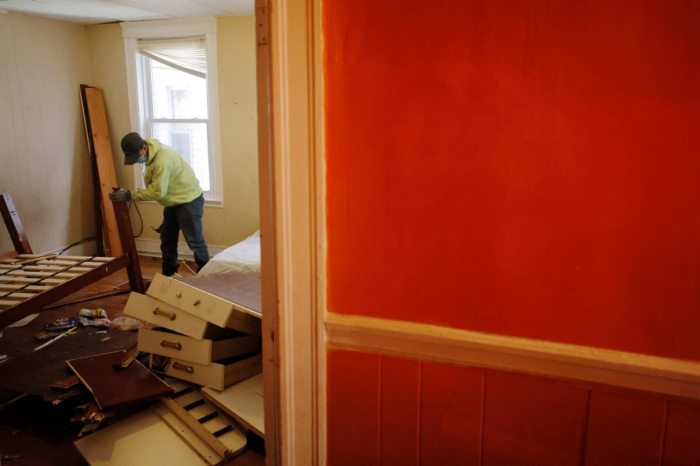The state commissioner in charge of disbursing the $2.6 billion given to the state for the federal Emergency Rental Assistance Program (ERAP) vowed to get most of the money in the hands of cash-strapped renters by the Sept. 30 deadline.
The program is a part of the Health and Economic Recovery Omnibus Emergency Solutions Act (HEROES Act) established by the federal government.
“New York received $2.6 billion to create ERAP, and the state kicked in another $100 million,” said Office of Temporary and Disability Assistance (OTDA) Commissioner Michael Hein, who heads the agency charged with distributing the funds.
“The purpose of the program is to assist households that have been unable to pay residential rent and/or utilities due to the COVID-19 pandemic,” Hein added.
Hein’s comments came at a State Assembly hearing on the program earlier this week. Assembly Members Steven Cymbrowitz (D-Brooklyn), Helene Weinstein (D-Brooklyn), and Linda B. Rosenthal (D-Manhattan) chaired the hearing.
To be eligible for ERAP, New York residents must meet all of the following four criteria. The household gross income must either be at or below 80% of the Area Median Income (AMI). On or after March 13, 2020, a member of the household must have received unemployment benefits or experienced a financial hardship, directly or indirectly, due to the COVID-19 pandemic, have rent overdue at their current residence, or the household must be at risk of experiencing homelessness or housing instability.
During the height of the pandemic, New York saw unemployment rates skyrocket, with over 3.4 million people filing for unemployment insurance in just one week, according to the New York State Comptroller’s office.
Several Assembly Members, along with tenants and housing advocates, criticized the program’s implementation and application process, including Assembly Members Carmen de la Rosa, Jessica Gonzales-Rojas, Jeffrey Dinowitz, Matthew Simpson, Nathalia Fernandez, Phara Souffrant Forrest, and Michael J. Fitzpatrick.
Rosenthal and De la Rosa addressed some of the frustration that her fellow members felt, pointing out the fact that many tenants are close to having nervous breakdowns due to the uncertainty of their living situation.
Ana Galvez, who is an immigrant and single mom, shared her challenges. She is also a member of Community Action for Safe Apartments (CASA).
“I lost my job last year, and I have had a terrible experience. I have struggled to pay rent, and because of my situation with my landlord, I had to organize with my neighbors. State leadership has failed again, and there is no excuse. Thus, the eviction moratorium should be extended,” said Galvez.
“Since the state received ERAP funds in January, there seems to be no movement, and we are now in August, and I don’t understand why,” said Rosenthal.
Dinowitz pointed out the failure of OTDA in not getting out payments to landlords and tenants fast enough.
“Currently, less than 4% of the $100 million payments have been sent out to tenants and landlords. That’s an abysmal rate of getting the job done, and thus, the question is: Should the moratorium be extended?” said Dinowitz.
Gonzales-Rojas pointed out the challenge of dealing with language barriers and reasonable accommodations when filling out the application online, which the Hein said can take up to an hour and half or more. Forrest echoed her sentiment.
“There needs to be a daily dashboard established that keeps a record of application data, and there must be real-time progress available that is accessible to all who apply,” said Gonzalez-Rojas.
Khadija Hussain, a housing benefits advocate at the Urban Justice Center, echoed this sentiment, emphasizing that, “There needs to be more languages added to the application options online, and the helpline.”
Fernandez emphasized her frustration with the fact that OTDA knew of the moratorium deadline, and waited until a few weeks were left to act.
Kim Statuto, who is another CASA member, echoed this sentiment, saying, “OTDA knew how difficult of a task this was. It’s a debacle.”










